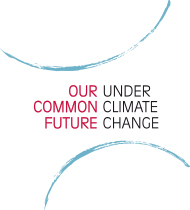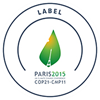Organizers : UNEP (United Nations Environment Programme), Division of Early Warning and Assessment
Date : July 7th, from 3pm to 5pm
Location : UNEP Offices, Paris, France
Expected number of participants : 1-50
Nature of participants : Policy makers, Researchers, Scientists, Disaster Risk Reduction actors, Humanitarian actors, Academicians, Health practitioners, Students, Media
Keywords : Disaster Risk Reduction, Climate Change, Early Warning, Vulnerability
Keynote speakers :
- J. Mcglade United Nations Environment Programme, Division of early warning and assessment, Nairobi, Kenya
- C. Gordon University of Ghana, Institute for environment and sanitation studies college of basic and applied sciences, Accra, Ghana
- A. Othowai IGAD Climate Predication and Application Centre (ICPAC), Disaster risk management, Nairobi, Kenya
- J. Oduor National Drought Management Authority (NDMA), Disaster risk reduction, Nairobi, Kenya
- J. Palutikof Griffith University, National climate change adaptation research facility, Southport, Australia
- S. Huq International Institute for Environment and Development, Dhaka, Bangladesh
- X. Yinlong Institute of Environment and Sustainable Development in Agriculture, Climate change lab, Beijing, China



